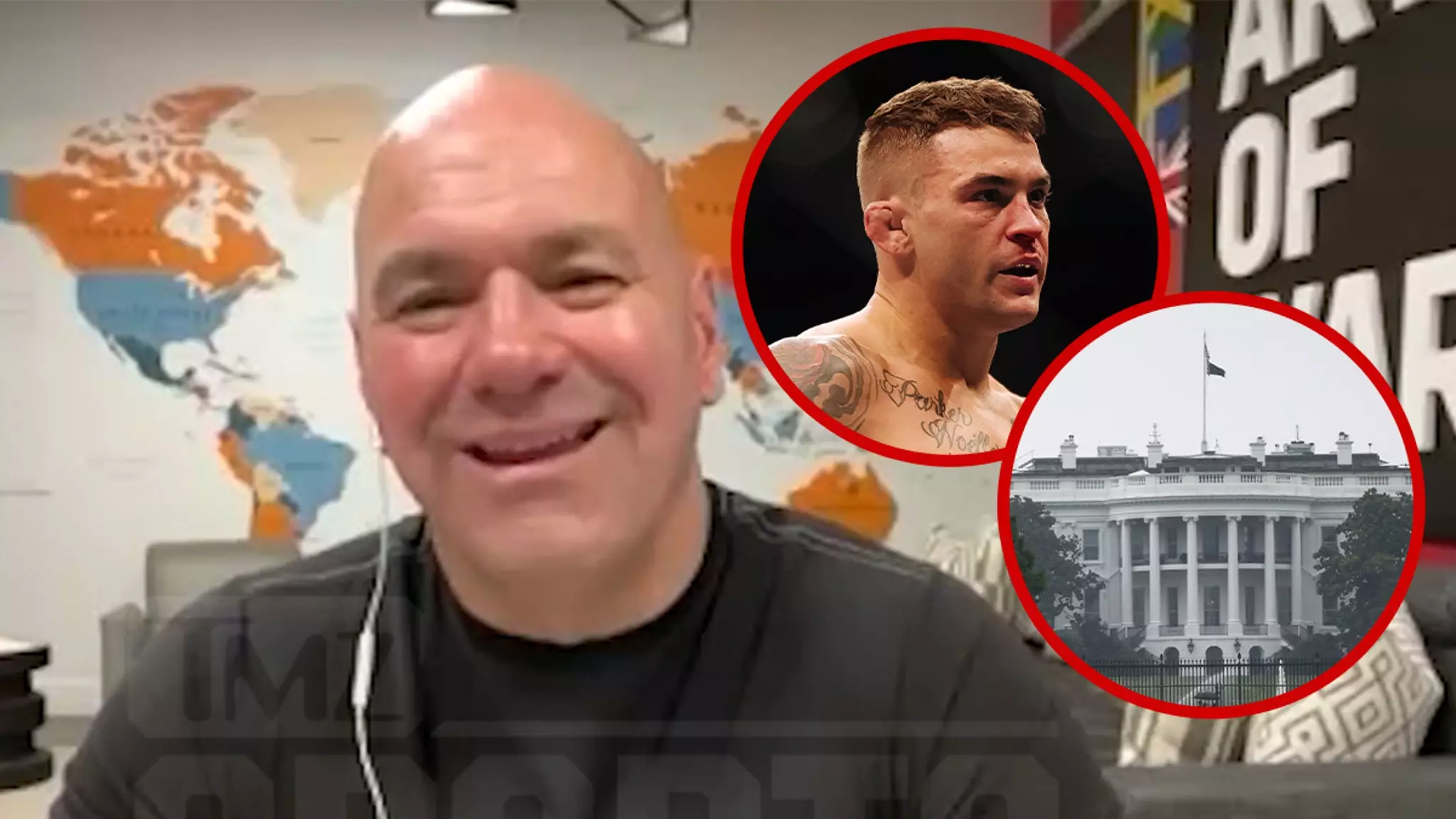Daring to host a UFC event at the White House signifies more than just a grand spectacle; it challenges traditional boundaries and elevates MMA’s cultural stature. Dana White’s confidence in orchestrating this groundbreaking event reveals a strategic vision aimed at positioning the UFC not merely as a sport but as a unifying national experience. This initiative, intended for the Fourth of July 2026—marking America’s 250th anniversary—embodies a desire to intertwine athletic excellence with patriotic celebration. White’s assertion that the event is nearly finalized and ready for discussions with President Donald Trump indicates a meticulous planning process driven by ambition and a knack for strategic collaboration.
It’s important to note that this ambition reflects White’s understanding of the power sports wield in shaping national identity. Unlike traditional sporting venues, the White House symbolizes American history, political leadership, and national unity. By proposing a fight on its grounds, White seeks to shift the focus from entertainment to cultural symbolism, emphasizing the sport’s growing legitimacy and importance. It’s a bold statement that MMA is not only a spectator sport but a shared experience that bridges gaps and fosters pride.
Navigating Security, Logistics, and Cultural Impact
The logistical hurdles of hosting such an event are staggering, especially given the security protocols associated with the White House. Unlike any UFC event before, this endeavor necessitates a comprehensive coordination effort involving multiple agencies and meticulous planning to ensure safety, accessibility, and the preservation of the historic site. White’s confidence in the plan suggests a highly structured approach, yet the reality of executing an event of this magnitude remains complex.
Crucially, White emphasizes that fans’ participation is a core theme. Trump’s philosophy on the White House as the “home of the American people” resonates deeply here, suggesting that this event aims to democratize access to a symbol of national heritage. This decision could redefine how political and sporting worlds intertwine—transforming a site traditionally associated with governance into a stage for athletic celebration and community engagement. If successful, it could set a precedent for future events aiming to leverage national landmarks for unifying experiences.
Star Power, Strategic Promotions, and Diversification of Combat Sports
While the event is still in its conceptual phase, the early buzz among fighters like Conor McGregor and Jon Jones underscores its potential to feature top-tier talent. White’s acknowledgment that star power will be a key element indicates a strategic effort to maximize appeal and viewership. Such a high-profile event would inevitably draw global attention, elevating the UFC’s profile on an international stage and potentially attracting new demographics.
Simultaneously, White’s enthusiasm about upcoming events like PowerSlap 14 and UFC 318 highlights his relentless drive for continuous entertainment and expansion. The inclusion of fighters like Dustin Poirier, Max Holloway, and others in the UFC’s upcoming bouts reflects a commitment to showcasing star talent while fostering rivalries that generate buzz. Moreover, White’s foray into boxing—teaming up with Saudi promoter Turki Alalshikh for the Canelo Alvarez vs. Terence Crawford fight—demonstrates a strategic diversification aimed at revitalizing boxing’s competitiveness and appeal.
Implications for the Future of Combat Sports
This ambitious project exemplifies White’s innovative mindset, willing to push boundaries and redefine what sport can represent. Hosting MMA at the White House isn’t merely about publicity; it’s about challenging perceptions, breaking geographical and institutional barriers, and elevating combat sports as a serious cultural phenomenon. If successful, this event could serve as a template for further integration of sports into national and cultural festivities.
White’s vision also underscores the evolving relationship between athletes, entertainment, and national identity. The fighters, once seen merely as competitors, could become symbols of unity and pride, embodying the spirit of resilience and excellence that the White House aims to represent. This confluence of sport, politics, and patriotism signals a new era in which combat sports carve out an even larger role on the national stage, transcending their traditional boundaries and inspiring collective pride.
Dana White’s audacious plan to bring UFC to the White House isn’t just an event—it’s a statement. It’s about challenging conventions, expanding the cultural footprint of MMA, and leveraging its universal appeal to unite a nation. Such an endeavor is risky, complex, and inherently transformative; whether it succeeds or falters, it embodies the fearless spirit required to redefine the landscape of combat sports on a historical scale.

Leave a Reply